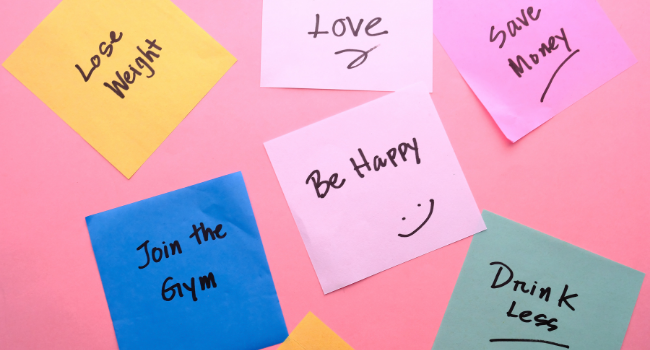Wake Up and Win: The Power of a Purposeful Morning
Mornings used to be the bane of my existence. I’d hit the snooze button a dozen times and when I finally dragged myself out of bed, I stumbled around in a fog of stress and anxiety. But then, it dawned on me—doing the same thing and expecting different results never works. So, I decided to switch things up by waking up a little earlier, brewing a fresh cup of coffee, and devoting 15 minutes to meditating or gentle stretching. I listened to the soothing sounds of a meditation app while feeling the plush blanket beneath my feet and wrapped up my ritual with sips or hot, rich coffee. My morning routine became a little slice of heaven—a moment of peace and calm to ground myself—that had ripple effects on my productivity, focus, and overall happiness that lasted throughout the rest of the day.
Good Morning, Good Health
Whether you’re an early bird or a night owl, starting your day with a nourishing morning routine can have incredible health perks. Most people already know a nutritious breakfast can jump-start your metabolism, but do you know it can also regulate your blood sugar? Also, a lesser known fact is that hydrating first thing is just as important as a well-balanced meal and can promote good digestion and regularity. Gentle exercise can be just the thing to get your blood pumping and your brain firing on all cylinders. In fact, a study published in Science Daily found that people who did moderate exercise in the morning had better cognitive performance and productivity throughout the entire day. Incorporating these healthy habits into your morning routine may also lower your risk for chronic diseases like heart disease, diabetes, and obesity. Plus, you’ll kickstart your overall well-being and may discover you're a morning person after all!
Morning Prescriptions
Add some pizzazz to your morning routine with these non-traditional ideas from my prescription pad.
To start your day off on the right foot, look no further than your reflection. Set a positive tone with a pep-talk in the mirror. Recite affirmations like "I am confident" or "I am worthy" to lift your self-esteem.
Get your creative juices flowing with a little art or strum a sweet chord on an instrument. Love a good read? Peruse a book, an article, or newspaper. Pump up your enthusiasm with a motivational podcast or playlist. If you're a goal-setter, jot down your daily or weekly goals.
Trying a simple skincare routine of washing, toning, and moisturizing can have you feeling refreshed and ready to face the day. Or, take a few minutes to do some deep breathing, journaling, or yoga to cultivate a sense of calm in order to tackle whatever the day brings.
Your morning ritual can make or break your day, so try different routines until you discover what works best for you.
Zen Over Screens
Don’t let your phone or laptop hijack your morning vibes. Rushing to check messages as soon as you wake up can leave you feeling frazzled and anxious before you even get out of bed. Instead of immediately diving into a screen, use the time to connect with yourself and the world around you with one of my morning prescriptions. Your brain (and your inner peace) will be grateful!
Start Your Day Like A Boss
Don’t just take my word for it—many of the world's most accomplished individuals swear by a healthy morning routine. Vogue's formidable editor-in-chief Anna Wintour prioritizes hitting the tennis court every morning to get her blood circulating and her mind sharp. Arianna Huffington, the wellness guru and founder of the Huffington Post, begins her day with meditation, exercise, and a wholesome breakfast—all essential ingredients for maintaining focus and productivity. And also, former First Lady Michelle Obama rises early for a workout to prioritize her own well-being. These powerhouse bosses understand the amazing benefits of a healthy morning routine—and their success speaks for itself.
Make Your Morning Routine Stick
It takes time to turn good intentions into a lifestyle: about 66 days. So, while it's great to mix things up and try new ones, it’s also crucial to establish a morning routine that you can stick to daily. You can't try something once and expect to see results, right? By making healthy habits a regular part of your morning ritual, you can track how far you've come and fine-tune your routine for even better benefits. Whether it’s making your bed, drinking water, meditating, or anything that sets you up for a successful day, commit to it every day!
Transform Your Life, One Morning at a Time
Don't settle for an average day by mindlessly rolling out of bed and letting the day happen to you. A healthy morning routine can transform your entire day, and even your entire life. Embrace your morning ritual as a daily act of self-love to fuel your passions and ignite your spirit.
Dr. Bernadette Anderson MD, MPH is not your ordinary family physician—she’s a wellness curator, author, and founder of Life in Harmony LLC, an innovative, intentional, action-oriented approach to well-being based on the principles of lifestyle medicine. With over 20 years of experience in health and wellness, Dr. Bernadette is a highly respected authority in her field. Her latest book, Fulfilled. 52 Prescriptions for Healing, Health, and Happiness is set for release in June 2023. She has also been feature in GoodRx, Essence, USA Today, Fatherly, and The Grio. Be sure to follow her on LinkedIn and Instagram.
Read More









